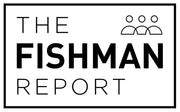About
Dr. H. Charles Fishman
Author, Marriage and Family Therapist
Dr H. Charles Fishman MD is a general, child, and adolescent psychiatrist with nearly 40 years of experience treating families, adolescents, and patients with eating disorders.
“The Fishman Report: Achieving Great Outcomes”
“Go forth with passion, imagination and rage” (Grace Paley)
Many decades ago, I became a family therapist when I witnessed its effectiveness to create change. The 16-year-old, emaciated youngster, starving for months, who began eating within the first therapy session, as her parents united was the pivotal moment.
I begin this blog series out of concern for family therapy, the field that is so powerful in transforming psychological problems. My concern is that it has become marginalized. It was not always so; not in such dire straits. These blogs will discuss what happened and, more importantly, what we can do as a field to right the ship.
The first generation of family therapists felt with great passion that mental health treatment needed to change. In those days, it was the psychoanalytic orthodoxy that squelched creativity and, frankly, common sense. Jay Haley often shared the anecdote, “ in the early days of the movement, at psychiatric conferences, a small group of us who were working with families would meet clandestinely in a hotel room, to share our revolutionary views. Much like the prodemocracy movement in the Soviet Union at the time”
It took great imagination for our founders to go beyond the prevailing groupthink to see mental illness as a contextual problem, not one solely residing in the brain. Consider the creativity of Jay Haley and Braulio Montalvo initiating the Institute for Family Therapy at the Philadelphia Child Guidance Clinic, where residents from the inner city were trained to become family therapists, eschewing the need for formal education. Many of these trainees, rich with experience and “street smarts”, proved to be superb family therapists.
The poor outcomes and the unmet contextual issues drove their rage for change. I was fortunate to work with some of the first-generation family therapists. Jay Haley was my first supervisor. We shared numerous cases and, as neighbors, we would frequently walk back home together from the Child Guidance Clinic. Iconoclastic and impatient for change, Jay saw problems in three dimensions, involving three people, the ubiquitous triangle. The brilliant and bold Salvador Minuchin, who rejected psychoanalysis’s invisible chimera, giving us instead the gift of family structure and grounded visible markers to assess families and track change. I was a young man, still in my twenties when Sal suggested we co-author the book Family Therapy Techniques. A foundational family therapy text. Braulio Montalvo, with the clearest vison, abjured psychobabble, teaching instead that every problem was maintained by the client’s contemporary context. Braulio co-authored, with Salvador Minuchin and Bernice Rosman, the groundbreaking book, Families of the Slums, published in 1967. The book detailed their work with the families of poor inner-city Harlem youngsters and their families. So far ahead of its time, the ideas remain innovative today in many communities.
Carl Whitaker became a good friend as we conducted workshops across the country together. He innately understood the need for transforming systems through his radical interventions. Mara Selvini-Palazzoli greatly understood systems and families as well in her early work with anorexia nervosa as we shared many conversations on family homeostasis.
So, here we are, over 40 years later, in a field that has become just one more entree of the smorgasbord of interventions like medication, play therapy, and CBT. What a massive loss. Family therapy is a profound paradigm and as we family therapists know, you can transform the deep tenets of self, by transforming the context.
Recently, the Lancet commission on global mental health, estimated a loss of US$16 trillion to the global economy due to mental health disorders in the period 2010 to 2030. I see this as an imperative to our field. Let’s return family therapy to its rightful place as the gold standard of care, wrenching the mantle away from the acontextual models, reducing costs and human suffering.
There is an urgency for change. Let us reinvigorate the field borrowing the passion, imagination and rage that our founders embodied.
